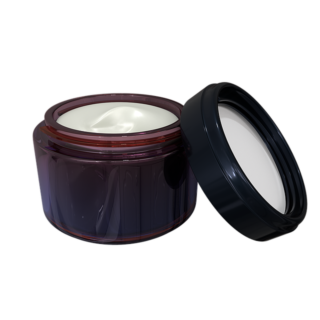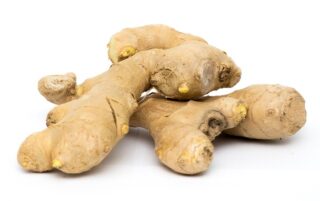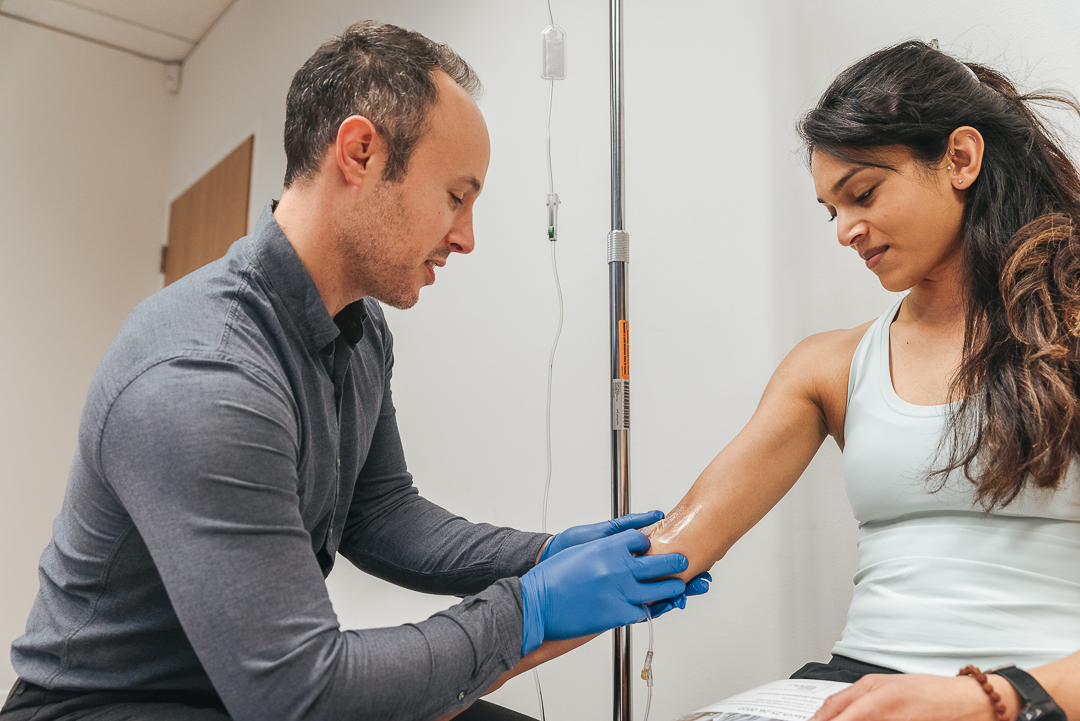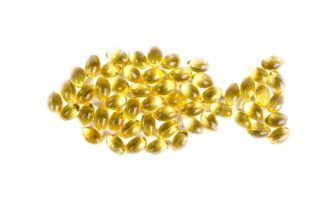Multiple sclerosis is a debilitating neurological disorder that can often leave patients feeling hopeless and alone. But there is hope! In this blog post, we will explore nine natural treatments for multiple sclerosis that have helped my Toronto patients alleviate some of the symptoms associated with the disease.
1. Acupuncture
Acupuncture is a traditional Chinese medicine technique that involves inserting thin needles into the skin at specific points on the body. It is believed that this helps to clear energy blockages and promote balance and healing within the body. There is some evidence to suggest that acupuncture may be effective in treating symptoms of multiple sclerosis, such as fatigue, pain, spasticity, and bladder problems.
2. Herbal Medicine
There are many different herbs that have been traditionally used to treat various ailments, including multiple sclerosis. Some of the most common herbs used for MS include ginger, ginkgo biloba, turmeric, milk thistle, lions mane and green tea. These herbs can be taken in pill form or brewed into a tea. It is important to talk to a Naturopathic Doctor or qualified herbal practitioner before starting any herbal treatment regimen, as some herbs can interact with medications you may be taking for your MS.
3. Dietary Changes
Making some simple dietary changes can also help improve symptoms of MS. One study showed that following a Mediterranean diet—which includes lots of fresh fruits and vegetables, whole grains, fish, and olive oil—may help reduce inflammation and slow the progression of MS. Other helpful dietary changes include avoiding processed foods and food allergies, getting enough vitamin D, and drinking plenty of water.
Food sensitivity testing can help to identify gluten sensitivity and other food sensitivities in people with MS and other autoimmune diseases. The most common type of food sensitivity test is an Elimination Diet, in which potential triggering foods are eliminated from the diet for a period of time and then reintroduced one at a time to see if symptoms occur. However, Elimination Diets can be difficult to stick to and can take months or even years to complete. Another option is an IgG Food Sensitivity Test, which measures levels of immunoglobulin G (IgG) antibodies in the blood.
Antibodies are produced by the immune system in response to perceived threats, such as bacteria or viruses. However, in people with food sensitivities, the immune system overreacts to harmless proteins found in certain foods, producing excessive amounts of IgG antibodies. IgG Food Sensitivity Tests can be helpful in identifying food sensitivities because they can measure levels of IgG antibodies specific to each individual food protein. This allows for a more targeted Elimination Diet and can speed up the diagnosis process. If you think you might have a food sensitivity, you can book an appointment for testing.
4. Exercise
Exercise is important for everyone, but it is especially crucial for those with MS. Regular physical activity can help reduce fatigue, improve mobility and coordination, ease depression and anxiety, promote better sleep, and boost overall fitness and well-being. Even if you are not able to do strenuous exercise due to your symptoms, there are still many low-impact activities you can do to get moving and feeling better.
5. Stress Reduction Techniques
Stress is a well-known trigger for multiple sclerosis (MS) flare-ups. Managing stress is therefore an important part of MS treatment. Stress management techniques such as relaxation therapy and yoga can be helpful, but some patients may also benefit from taking adaptogens. Adaptogens are a class of natural substances that help the body to adapt to stress by reducing the production of stress hormones. They have been used for centuries in traditional Chinese and Indian medicine, and are now gaining popularity as a natural treatment for stress and anxiety. Some common adaptogens include ashwagandha, holy basil, and ginseng. If you are interested in trying adaptogens, talk to your Naturopathic doctor first to discuss whether they are right for you.
6. Vitamin D
Vitamin D is an important nutrient that helps the body absorb calcium. It’s found naturally in very few foods, so most people get it from exposure to sunlight. Vitamin D is also available in supplement form. Some studies suggest that vitamin D may play a role in helping to prevent or treat MS. If you think you might be deficient in vitamin D, book an appointment with us for vitamin D testing or talk to your doctor.
Sometimes supplementation is ineffective or can take too long to bring up severely deficient vitamin D levels. I offer these patients the option of a high potency vitamin D injection that will bring levels up very quickly.
7. Mitochondrial Support
Mitochondrial support using resveratrol, alpha lipoic acid, coenzyme Q10 and NAD boosters is a promising new treatment for patients with multiple sclerosis. Mitochondria are the powerhouses of the cell, and they are responsible for producing energy. In patients with multiple sclerosis, the mitochondria are not working properly, and this can lead to fatigue and other symptoms. Resveratrol, alpha lipoic acid, coenzyme Q10 and NAD boosters help to support the mitochondria and improve their function. In a small study of patients with multiple sclerosis, those who received mitochondrial support had less fatigue and improved quality of life.
8. Hormones
Hormones play an important role in the human body, regulating everything from metabolism and mood to reproduction and energy levels. When hormones are out of balance, it can lead to a host of problems. For patients with multiple sclerosis (MS), hormone imbalances can cause fatigue, weight gain, depression, and loss of libido. Hormone testing can help to identify imbalances and allow for tailored treatment plans that use bio identical hormone replacement therapy to restore balance. By addressing hormone imbalances, patients with MS can improve their quality of life and potentially reduce their risk of disease progression.
9. Cannabinoids
Recently, cannabinoids have emerged as a potential therapy for MS. Cannabinoids are compounds found in the cannabis plant, and they have been shown to have anti-inflammatory and neuroprotective effects. In animal studies, cannabinoids have been shown to reduce inflammation and nerve damage in models of MS. In small clinical trials, cannabinoids have been shown to improve symptom control in patients with MS. These promising results have led to the development of several cannabinoid-based medications for MS. Dr. Shawn Meirovici N.D. is experienced cannabis educator in Toronto, Ontario. Dr. Shawn can help patients decide if cannabis therapy would be a good addition to their treatment plan.
Conclusion:
If you are living with multiple sclerosis (MS), know that you are not alone—there are millions of other people around the world dealing with this disease every day. And while there is no cure for MS at this time, there are many different treatments that can help alleviate some of the symptoms associated with the disease. In this blog post, we explored nine natural treatments for MS—acupuncture , herbal medicine , dietary changes , exercise , stress reduction techniques, vitamin D, mitochondrial support, hormone balancing and cannabinoid therapy. Make an appointment with us or talk to your doctor about which treatments might be right for you.
What can I do beyond steroids?
If your child has eczema, you are not alone. Eczema is a common skin condition affects about 10 to 20 percent of infants and about 3 percent of adults and children. While there is no cure, eczema can be managed with medical treatments and home care. The goal is to reduce inflammation and itchiness, and to prevent new flare-ups. When using steroidal creams for treatment, many parents wonder if there are natural ways to soothe their child’s eczema flare-ups?
The good news is that there are! When used alone or together with steroids, these natural treatments can help manage your child’s eczema flare-ups:
Food Sensitivity Testing
With eczema, the skin is a reflection of what’s going on inside the body – specifically in the gut. A food sensitivity test can help assess intestinal permeability (leaky gut) and inflammation. Once problem foods are identified, they can be eliminated from the diet, which can help reduce inflammation and improve gut health.
Probiotics
Probiotic strains may help balance the immune system and reduce inflammation. Probiotics can be taken orally in the form of supplements or food (such as yogurt).
Omega 3 Fatty Acids
These healthy fats promote a healthy lipid bilayer, which helps keep skin hydrated and supple. Omega 3 fatty acids can be taken orally in supplement form or applied topically as part of a natural eczema cream.
Vitamin D3
Vitamin D3 is a natural anti-inflammatory vitamin that helps boost the immune system. It can be taken orally in supplement form or applied topically as part of a natural eczema cream.
Zinc
Zinc is an essential mineral that plays a role in immune function and tissue repair. It can be taken orally in supplement form or applied topically as part of a natural eczema cream.
Conclusion
While there is no cure for eczema, it can be managed with medical treatments and home care. When used alone or together with steroids, these natural treatments can help soothe your child’s eczema flare-ups: food sensitivity testing, probiotics, omega 3 fatty acids, vitamin D3, zinc.
Book an appointment today!
Intro
According to the National Sleep Foundation, “insomnia is defined as repeated difficulty with sleep initiation, maintenance, consolidation, or quality that occurs despite adequate opportunity and circumstances for rest,” and it affects approximately 30-35% of adults. If you’re one of the millions of people struggling to get a good night’s sleep, know that you’re not alone—and there are naturopathic treatments that can help!
Sleep Hygiene
One of the best things you can do to improve your sleep is to practice good sleep hygiene. This includes habits like avoiding caffeine in the afternoon and evening, avoiding alcohol before bed, Establishing a regular sleep schedule, and avoiding screens in the bedroom. Creating a relaxing bedtime routine can also be helpful; consider taking a bath or reading a book before climbing into bed.
Nutraceuticals
There are also a number of nutraceuticals—or nutrients that have medicinal properties—that can help improve sleep. Melatonin is a hormone that helps regulate the body’s natural sleep-wake cycle, and supplements can be effective in treating insomnia. 5-HTP is another nutrient that can be helpful in treating sleeplessness; it works by increasing levels of serotonin, a neurotransmitter that plays an important role in regulating sleep. Other nutrients that have been shown to be effective in treating insomnia include gamma-aminobutyric acid (GABA), valerian root, and passionflower.

Traditional Chinese Medicine
Traditional Chinese Medicine (TCM) offers another treatment option for those struggling with insomnia. Acupuncture is one of the most well-known TCM treatments; research has shown that it can be effective in treating insomnia by promoting relaxation and improving sleep quality. Herbal medicine is another TCM modality that can be helpful in treating sleeplessness. Traditional Chinese herbs that have been used to treat insomnia include jujube seed, ziziphus seed, longan fruit, tianma root, ginseng root, and magnolia bark.
Cannabis
Cannabis is another treatment option that is gaining popularity for its ability to effectively treat insomnia. THC, the primary psychoactive compound in cannabis, has been shown to increase slow-wave sleep—the deepest stage of sleep—while CBD has been shown to reduce REM sleep density, which may lead to more restful sleep. For those who are interested in trying cannabis for their insomnia but are worried about the potential for addiction or abuse, CBD-only products may be a good option as they do not have any psychoactive effects.
Conclusion
If you’re one of the millions of people affected by insomnia, know that you’re not alone—and there are treatments out there that can help! Sleep hygiene practices like avoiding caffeine and screens before bed can make a big difference, and nutraceuticals like melatonin and 5-HTP can also be effective in treating sleeplessness. Traditional Chinese Medicine modalities like acupuncture and herbal medicine can also offer relief from insomnia; cannabis is another treatment option gaining popularity for its ability to improve sleep quality. Talk to your naturopathic doctor about which treatment option may be right for you!
Book an appointment today!
Are you feeling tired, moody, and bloated? You might be experiencing the symptoms of hormone imbalance. This is a common problem for women, especially mothers. But don’t worry, there are natural treatments that can help restore your hormones to balance. In this blog post, we will discuss what hormone imbalance is, its symptoms, and how to treat it naturally. Keep reading to learn more!
Estrogen Dominance
Estrogen dominance is a condition that can occur when there is an imbalance of estrogen and progesterone in the body. When estrogen levels are too high relative to progesterone levels, it can lead to a number of symptoms, including mood swings, bloating, fatigue, and irregular menstruation.
Estrogen dominance can be caused by a variety of factors, including stress, diet, and certain medications. If you are experiencing any of these symptoms, we can help to properly diagnose and treat the condition. Estrogen dominance is a common hormonal imbalance that affects many women, but with proper treatment, it can be effectively managed.
BHRT
Bioidentical hormone replacement therapy is a treatment for estrogen dominance that involves using hormones that are identical to the ones produced by the body. This type of therapy can be used to treat a variety of symptoms associated with estrogen dominance, such as hot flashes, night sweats, mood swings, and weight gain. Bioidentical hormone replacement therapy can also help to protect against osteoporosis and heart disease.
While traditional hormone replacement therapy uses synthetic hormones that are not identical to those produced by the body, bioidentical hormone replacement therapy uses hormones that are exact replicas of the ones naturally produced by the body. This makes bioidentical hormone replacement therapy a more natural and effective treatment for estrogen dominance.
PCOS
Polycystic ovary syndrome (PCOS) is a hormonal disorder that affects women of reproductive age. The four main features of PCOS are insulin resistance, high levels of testosterone, low levels of follicle-stimulating hormone (FSH), and high levels of luteinizing hormone (LH). Insulin resistance is the most common cause of PCOS, and it occurs when the body doesn’t use insulin effectively. This leads to higher than normal levels of Insulin in the body. High Insulin levels increase testosterone production, which can interfere with the development of follicles on the ovaries. As a result, ovulation may be irregular or may not occur at all.
FSH is responsible for stimulating the growth of follicles on the ovaries, and LH is responsible for triggering ovulation. When FSH and LH are out of balance, it can lead to PCOS.
Cortisol is a stress hormone that can also contribute to PCOS. It does this by increasing Insulin Levels and affecting how the body uses glucose. As a result, women with PCOS often have higher than normal levels of Cortisol in their bodies.
PCOS can cause a variety of symptoms, including weight gain, irregular menstruation, fertility problems, low sex drive, and mood swings. PCOS can also cause acne and excess hair growth. While there is no cure for PCOS, there are treatments that can help manage the symptoms.
PCOS is thought to be caused by a combination of genetic and environmental factors. A woman’s risk of developing PCOS increases if she has a family history of the condition. PCOS is also more common in women who are overweight or obese. If you think you may have PCOS, talk to your doctor about your symptoms.
Diet and exercise are two of the most important factors in managing PCOS. Both help to regulate hormone levels and improve insulin sensitivity. One of the best ways to get started is to eat a nutritious diet and to get at least 30 minutes of exercise every day.
Additionally, supplements like l-carnitine, inositol, and vitamin D can be helpful in managing PCOS symptoms. L-carnitine helps to boost energy levels and improve fertility, while inositol helps to regulate hormones and reduce inflammation.
Vitamin D is essential for fertility and has also been shown to improve insulin sensitivity. All of these nutrients are available in food sources or supplements. By making dietary and lifestyle changes, you can help to manage your PCOS symptoms naturally.
Chronic Stress
Estrogen, testosterone, and other hormones play a vital role in the human body. They are involved in regulating mood, energy levels, metabolism, and sexual function. However, these hormones can be easily disrupted by stress.
When the body is under stress, it releases a hormone called cortisol. cortisol helps the body to deal with short-term stressors by increasing heart rate and blood pressure. However, if cortisol levels remain high for long periods of time, it can interfere with the production of other hormones, including estrogen and testosterone. This can lead to a number of problems, such as fatigue, weight gain, and difficulty concentrating.
Additionally, stress can also disrupt the delicate balance of progesterone and estrogen, which can lead to irregular periods and hot flashes in women. Therefore, it is important to manage stress in order to maintain hormone balance.
Diet, exercise, meditation, sleep and adaptogens are all effective ways to manage stress naturally. Diet can help by reducing inflammation and providing the nutrients needed for the body to function optimally. Exercise releases endorphins, which have mood-boosting effects, and also helps to reduce levels of the stress hormone cortisol.
Meditation helps to focus and calm the mind, and research has shown that it can be as effective as medication for treating anxiety and depression. Sleep is essential for rest and recovery, and 7-8 hours per night is recommended for most adults.
Adaptogens are a unique class of herbs that help the body to adapt to stressors by modulating the stress response. When used regularly, they can help to prevent burnout and promote resilience. Managing stress naturally requires a holistic approach, but incorporating these simple strategies into your daily routine can make a big impact.
If you’re experiencing any of the symptoms we’ve talked about, it might be time to see a naturopathic doctor. NDs are experts in hormonal balance and have many natural and effective treatments at their disposal. Don’t suffer in silence – book a consultation today and start feeling like yourself again.
Do you feel like you’re always getting sick? Are you constantly battling colds and the flu? If so, you may need to boost your immunity. Luckily, there are a number of natural treatments that can help. In this blog post, we will discuss some of the best ways to improve your immune system naturally.
Vitamin D for immunity
Vitamin D is essential for a strong immune system. It helps the body to produce antibodies, which fight infection. Vitamin D can be found in fatty fish, eggs, and fortified milk. You can also get Vitamin D from exposure to sunlight.
Trouble keeping up with vitamin D supplements and worried about sun exposure? Not to worry, at my clinic we offer the option of a vitamin D injection. Under professional supervision, this is a safe and effective way to boost vitamin D levels quickly.
Vitamin C for immunity
Another important nutrient for immunity is Vitamin C. Vitamin C helps the body to create white blood cells, which fight infection. Vitamin C can be found in citrus fruits, tomatoes, bell peppers, and broccoli.
Intravenous vitamin C is a great way to get a high dose of Vitamin C. By bypassing digestion, IV vitamin C can boost levels quickly. Intravenous vitamin C can also increase blood concentrations at levels that directly kill pathogens and inhibit cancer growth.
Zinc for immunity
Zinc is another important mineral for immunity. It helps the body to create new cells and enzymes that fight infection. Zinc can be found in oysters, beef, pork, chicken, and beans.
Zinc can also be added to intravenous infusions for an added immune system boost.
Elderberry Syrup
If you’re looking for a kid friendly and great tasting way to boost your immunity, elderberry syrup is a great option. Elderberries are rich in Vitamin C, Vitamin A, and antioxidants. They have been shown to reduce inflammation and fight infection. You can find elderberry syrup at most health food stores.
Ginger for immunity
Ginger is another great option for boosting your immunity. Ginger is a natural anti-inflammatory and can help to reduce congestion. It can also help to soothe a sore throat. You can find ginger in the form of capsules, tea, or syrup.
Garlic for immunity
Garlic is another excellent food for boosting your immunity. Garlic is rich in Vitamin C, sulfur, and antioxidants. It has been shown to fight infection and reduce inflammation. You can add garlic to your food or take it in supplement form.
Selenium for immunity
Selenium is a trace mineral that is important for immunity. Selenium helps the body to produce antibodies, which fight infection. It can be found in Brazil nuts, tuna, shrimp, and eggs.
Selenium can also be added to an intravenous infusion for an added immune boost.
Vitamin A for immunity
Vitamin A is an important nutrient for immunity. Vitamin A helps the body to produce white blood cells, which fight infection. Vitamin A can be found in sweet potatoes, carrots, dark leafy greens, and squash.
Probiotics for immunity
Probiotics are live bacteria that are good for your gut health. Probiotics help to keep the balance of good and bad bacteria in your gut. This can help to improve digestion and boost immunity. You can find probiotics in yogurt, kimchi, sauerkraut, and kombucha.Probiotic supplements are also available.
There you have it! These are just a few of the best ways to boost your immunity naturally. By including these foods and supplements in your diet, you can help to keep yourself healthy and avoid getting sick. In individuals requiring an extra boost, injection and intravenous treatments are available and effective. Do you have any other favourite natural immunity boosters? Share them with us in the comments
What is PCOS?
Finding an effective treatment for Polycycstic ovarian syndrome (PCOS) is important to me for two distinct reasons. 5-10% of woman are impacted by PCOS in their lifetime making PCOS a common and treatable condition in my Naturopathic practice. The second reason is that it is a condition that my wife has struggled with for many years therefore making it a syndrome that hits close to home.
PCOS is a bit of a misnomer as it is a continuum of symptoms and doesn’t necessarily have to include ovarian cysts. It is however characterized by several common objective findings including irregular periods, infertility, shifts in hormone balance (DHEA, Testosterone, LH, FSH), hirsutism (hair growth on the lip, chin and abdomen), Hair loss (Male pattern head hair loss), acne (typically on the lower jaw), high levels of insulin due to insulin resistance, and unexplained weight gain (especially around the abdomen).
Although we still do not know all the mechanisms involved as to why some women develop PCOS, there does seem to be a genetic component. Environmental toxins such as BPA seem to play a role, and gastrointestinal dysbiosis (unfriendly bacteria in the gut) plays a role as well.
Conventional Treatment for PCOS
Some of the more common conventional treatments of PCOS include birth control pill (to regulate irregular periods and hormone levels), metformin (a insulin sensitizing drug that helps to control blood sugar levels commonly used in diabetes), and spironolactone (a diuretic that also has the ability to block a type of testosterone formation called DHT). While these treatments can be helpful in the short-term they do not always address the root cause of PCOS and therefore ultimately fail in the long term. Some of these causes include hormone disrupters in the environment and diet, and gastrointestinal dysbiosis (leading to the production of inflammatory compounds that compromise insulin function).
Holistic Treatment for PCOS
Luckily there are relatively easy and low cost solutions to many of the fundamental causes of PCOS. As a Naturopathic Doctor I have the privilege and ability to take a detailed medical history. Doing so can point me in the direction(s) as to where these foundational imbalances are occurring. For instance if the patient has a history of gastrointestinal concerns, (constipation, diarrhea, gastritis, colitis) that informs me to focus investigation on the gastrointestinal tract. If a patients main concern is infertility and irregular periods I will shift focus into hormone balance. It may also be the case that a patient has several concern at the same time, which is not uncommon in PCOS. Once I know where to focus we can run specialized tests such as comprehensive stool analysis, female hormone panels, nutrient level panels, food sensitivity testing and environmental toxins. This aids in narrowing down where to implement the bulk of the treatment protocol. There are some general recommendations that are sure to aid all women with PCOS such as exercise, reduced carbohydrate diets and lowering exposure to petrochemicals. However, the medical history and specialized testing can be a guide for more specific recommendations.
Functional Testing for PCOS
A nutrients panel test can help determine if there are specific nutritional deficiencies such as low levels of vitamin D, vitamin A and omega-3 fatty acids, which tend to be common in PCOS. A female hormone panel can determine if there are specific imbalances with sex hormones. These imbalances can potentially be corrected with dietary recommendations, bio-identical hormone replacement, and nutraceutical supplements. Evidence of dysbiosis in gut from a stool analysis can be reversed with dietary recommendations that promote colonization of helpful butyrate producing bacteria. Nutraceuticals containing antibiotic herbs can preferentially kill harmful bacteria while protecting good bacteria. Probiotic supplements containing specific strains of bacteria and prebiotic fibre can be very effective. Food sensitivity testing can help confirm if there are specific foods in the diet that are activating an immune response, causing further inflammation in the gut. Environmental toxin analysis would shed light on high levels of exposure to particular toxins, most of which are known hormone disruptors. Even the simple testing of insulin levels and blood sugar can lead to recommendations for easily accessible compounds like inositol, L-carnitine and chromium which can effectively increase insulin sensitivity.
Conclusions
The take home message is that PCOS is an extremely common and often disruptive condition for a significant amount of women worldwide. The conventional treatment of PCOS often does not provide long term solutions and can have significant side effects. Simple and inexpensive solutions through dietary, supplement and lifestyle recommendations can address the root causes of PCOS and bring about significant symptom relief with long-term sustainability. I therefore encourage anyone suffering from PCOS who hasn’t found an effective solution to contact a local Naturopathic Doctor or Functional Medicine Doctor for an assessment. If you would like to contact me, you can do so through the appointment page by clicking the link in the menu bar. The sooner you start to address the root causes the easier and quicker long lasting symptom relief can be achieved. That being said, implementation of a functional medicine approach to PCOS will undoubtably be helpful at any stage and at any age.
What is NAD?
NAD IV therapy was described to me as a “game changer” while I was at a medical conference in Arizona. Up until then I had regularly treated my patients with vitamin and mineral infusions to help restore energy, sleep and manage the physical symptoms of stress amongst other things. I had come to terms with the fact that I could expect about a 60-70% response rate in my patients who were being treated for chronic fatigue. A colleague told me that NAD would be a game changer and that I could expect to see better and more consistent results. After my first NAD patient texted me the following day that they felt like a million dollars, I was sold to the idea.
NAD stands for nicotinamide adenine dinucleotide. It is a coenzyme that our body requires in order to convert food into energy and for facilitating many biochemical reactions. We need NAD to metabolize nutrients, proteins, carbohydrates and fats. NAD also impacts the functioning of cells, formation of muscle and regeneration of tissue. Studies have shown that low NAD levels are detrimental to muscle development, while elevated NAD levels could improve muscle health.
Like many fundamental nutrients and hormones, NAD levels decline as we age. This can prompt changes to our metabolism, energy levels, and our biochemistry over time. Low NAD levels can also make us more susceptible to age-related diseases and health concerns, such as Alzheimer’s, sarcopenia, and inflammation. NAD has even been touted as an anti-aging nutrient.
At my Toronto Naturopathic located in York MIlls, between the Bayview village area and Leaside, we have started to incorporate NAD into many of our IV infusions. Here are some of the outcomes of NAD therapy backed up by clinical research:
Cognitive dysfunction
Boosting NAD intake can impact brain health by improving neuronal function, protecting brain cells from harm, and driving mitochondrial functioning. Animal studies have shown that a group of signalling proteins called sirtuins may be linked to memory and learning. Sirtuins protect the body from amyloid proteins, which are related to Alzheimer’s and other degenerative diseases. Sirtuin production relies on NAD. Boosting NAD levels may likely help protect the body from amyloid proteins via sirtuin production.
Recovery from substance abuse
Excessive consumption drugs and alcohol can cause damage to organs and tissues including the brain. Studies have shown that substance abuse can specifically cause a drop in NAD levels. NAD is fundamental in the repair and detoxification pathways engaged after consumption of drugs and alcohol. Boosting NAD levels with IV therapy can help with cravings while mitigating brain fog, anxiety and fatigue.
Athletic Recovery
Proper energy metabolism and inflammatory pathways are fundamental in athletic recovery from training and injury. NAD supplementation helps to optimize energy metabolism through mitochondria activity, increases blood flow and reduces inflammation. These benefits in turn help to hasten the recovery phase and lessen muscle pain.
Chronic Fatigue
If you’re struggling with Chronic Fatigue or Myalgic Encephalomyelitis (ME), NAD could offer some alleviation. One of the ways NAD works via the mitochondria is by boosting the production of ATP. ATP is the primary energy source of all cells in the body. Boosting NAD levels via IV infusion helps to increase ATP production thereby reducing the severity of chronic fatigue syndromes.
Wondering how you may benefit from NAD supplementation? Give me a call or email and we can discuss how NAD may help you reach your health and wellness goals.
What is Long Covid?
Long Covid is defined as symptoms that present 12 weeks after infection and that persist for at least 8 weeks. The most common symptoms being: Fatigue, Shortness of Breath and Cognitive Dysfunction. There will be an estimated 150 million cases of Long Covid cases worldwide as of 2022. Long Covid has the potential to significantly impact the lives of a large portion of the population making day to day activities difficult or near impossible. Although there are ways to reduce the risk factors in developing long covid, there aren’t many proven conventional medications to treat Long Covid once symptoms set in.
We now know that viral fragments, lingering spike protein and persistent inflammation are all likely features of Long Covid. This chronic state of immune activation leads to heart and blood vessel abnormalities, lung impairment, neurological injury and autoimmunity. Luckily, functional medicine practitioners have been at the forefront in developing protocols that work to resolve the aftermath of COVID-19 infection.
Mitochondrial Dysfunction
There is evidence of mitochondrial dysfunction in Long Covid cases as seen through disruption in fatty acid oxidation and altered lactate production. This would also partially explain the chronic fatigue of Long Covid. Functional medicine has a long history of developing protocols to address mitochondrial dysfunction. Many of the compounds used have been showing promise in treating Long Covid. For example, there is evidence of reduced levels of Coenzyme Q10 in COVID-19 infection. CoQ10 is an important compound in mitochondrial function and energy production. Supplementing with this compound along with other mitochondrial supportive nutrients (Niacin, N-Acetyl Cysteine, Alpha Lipoic Acid) have been helpful in treating Long COVID associated fatigue.
Chronic Inflammation
We also know that there is a wealth of data to suggest high levels of inflammatory markers in Long Covid sufferers. Conventionally, steroids such as prednisone have been used to effectively treat Long Covid symptoms. However, steroids can not be used indefinitely as there are significant side effects associated with long term usage. In Naturopathic and Functional Medicine we have evidence of a number of naturally derived compounds that work to treat Long Covid associated inflammation including: Curcumin, Resveratrol, Cannabinoids, Luteolin, Omega 3, and Black Cumin.
Immune System Abnormalities
We also know that there is immune system dysfunction in Long Covid as evidenced in abnormal T-cell behaviour. One of the most important compounds regulating immune function is vitamin D. There is strong evidence that having adequate vitamin D status prior to Covid infection is protective toward Long Covid and giving large doses of vitamin D to both active Covid-19 cases and Long Covid sufferers can be therapeutic.
Gastrointestinal Symptoms
Long Covid cases also seem to have a higher incidence of prolonged gastrointestinal symptoms and intestinal dysbiosis with organisms that increase inflammation. One of the best ways to treat intestinal inflammation is by promoting the growth of intestinal organisms that produce the short chain fatty acid Butyrate. Food that is high in fibre typically help to promote beneficial species of intestinal organisms. Oats, Apples, Onions, Asparagus, Broccoli, Whole grains, underripe bananas, Legumes, and Berries are some excellent foods shown to promote butyrate production.
Cannabinoids
Cannabinoids, and more specifically cannabidiol (CBD) has been shown to have some interesting mechanisms in the treatment of Long Covid. Strains of cannabis containing high levels of CBD have been shown to block spike protein from entering the cell (via ACE-2 receptors), modulate ACE-2 receptor density on cell surfaces (less doors of COVID to enter) and reduce inflammation. Therefore cannabinoids are very exciting compounds currently being investigated for use in Long Covid therapy.
Conclusions
Long Covid is a multifaceted chronic disease with effects on various physiological systems. Drugs with a narrow therapeutic scope are not going to be as effective as complex compounds that effect multiple physiological processes at the same time. This type of therapeutic synergy is a hallmark of naturally derived medicines and therefore functional medicine is going to play a pivotal role in dealing with this prevalent and highly complex disease state. In my Toronto practice I have had several cases of long covid that only began to resolve once a functional medicine protocol was put into place. So if you know someone who is suffering from Long Covid I recommend connecting them with a local Naturopathic Doctor or Functional Medicine Practitioner.
Traumatic brain injury is damage to the brain that is the result of a head injury. Quality of life is greatly diminished for those living with a traumatic brain injury. Even fatal results can occur. As the quantity of study devoted to CBD develops, there is the rise in the query that whether CBD can help in treating brain injury or not. Currently, the research indicates that CBD possesses neuroprotective properties. Such effects can include mitigating the effect of head injuries.
A flexible and effective anti-inflammatory cannabinoid that has few to no adverse effects is known as cannabidiol or CBD. The number of conditions treatable with CBD increases daily with the introduction of fresh scientific information. There is emerging evidence that CBD is starting to be used as a treatment for severe traumatic brain injury.
TBI can happen to anyone who suffers from brain trauma, and it can affect every aspect of life.
What Do We Understand from Traumatic Brain Injury?
Any brain injury merits serious concern. The brain goes through a cascade of reactions after sustaining a significant injury. Inflammation, edema, and immunological activation are included in this list.
Though this is a usual and helpful set of reflexes in response to a break or fracture. Additional neurological damage might result from this set of events.
When brain cells die, the damage to the brain as a whole will soon follow. Common TBI patients include people who have served in the military, professional athletes, and victims of motor vehicle collisions. TBI can have enduring and crippling repercussions, and might manifest emotionally, physically, behaviorally, and socially.
A lot of the time, these impacts are life-altering. As well as cognitive deterioration and impaired motor function, depression and anxiety are common side effects. Severe symptoms among certain people with TBI can also result in seizures. Conventional medicine currently lacks effective treatments for minor TBI, which is an underreported and frequently misdiagnosed condition.
Scientific Evidence Which Says CBD is Effective for TBI
CBD is showing some evidence of usefulness in reducing some of the harmful effects of TBI, specifically in the areas of inflammation and neurological complications.
A paper published in Frontiers in Pharmacology claims that “The Endocannabinoid System Possesses Potentially Drugable Receptor and Enzyme Targets for the Treatment of Varying TBI Pathology.”
In addition, there are numerous studies which suggest that in combination with THC, CBD is neuroprotective, indicating that regular ingestion of cannabinoids reduces the likelihood of a catastrophic brain injury.
More and more research about TBI is becoming available with each passing year. A variety of research studies agree that the ECS plays a major role in the development of mental, bodily, and behavioral responses after a TBI.
Although further study is needed to produce precise protocols that may be accessible and recommended by mainstream medicine, some preliminary research has already been done. Each example is adding information to the outlook for the condition treated with cannabinoids.
Anecdotal Support for Using CBD as a Treatment for Brain Injury
It takes years for new scientific information to be studied and released. To draw a conclusion, you first must subject the drug being investigated, in this case CBD, to rigorous testing.
While scientific studies take time, evidence exists for the benefits of cannabis in treating brain injury based on anecdotes from patients.
CBD has the potential to improve the quality of life for people who have suffered a brain injury by allowing them to increase their quality of life.
Final Words
CBD’s brain-healing qualities are not yet fully understood and must be investigated further. Much research is being conducted regularly, and soon we will get a clearer understanding of the role of CBD in TBI. The current research suggests that CBD has some properties which can help increase quality of life in brain injury, but we cannot be sure how effective it is or if it has any side effects. We have to wait for more research to be conducted and results to be announced; only then can we be sure about how effective it is to use CBD as a treatment for brain injury.
About the author:

Sean Roberts is a writer by profession. He is a full time writer working with NY Marijuana Card, a leading clinic that provides medical marijuana recommendations. He aims at educating people about the medicinal use of cannabis https://nymarijuanacard.com/














